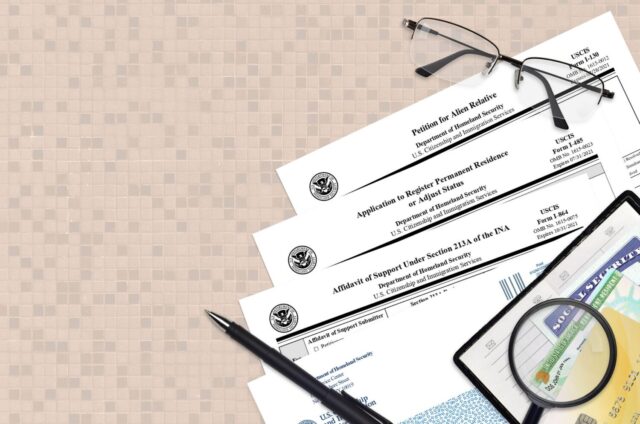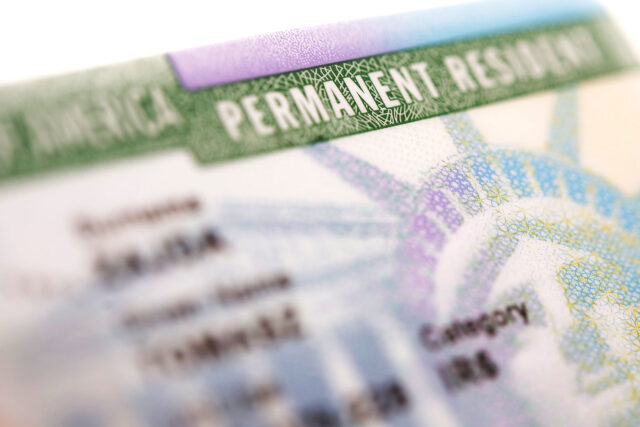
The path toward reuniting with family in a new country can be a labyrinthine journey filled with legal intricacies and procedural twists. The objective of this comprehensive guide is to illuminate that path by offering clear insights and actionable advice on family-based sponsorships.
We will walk hand in hand through this complex legal process, shedding light on everything from gathering the essential documents to appealing unfavorable decisions. So whether you’re a seasoned attorney or just beginning this journey, read on to gain a deeper understanding of what lies ahead. The services of a green card lawyer may also be required at some stage so keep that in mind.
Gathering Required Documentation

Family-based sponsorships demand precision and accuracy. The legal process begins with collecting a variety of vital documents. These include proof of citizenship or legal residency, evidence of familial relationships, and financial statements. The assembly of these documents is not simply a clerical task; it is the foundation upon which the entire application is built. Missing or incorrect information can derail the process before it even begins.
Armed with the knowledge that each document plays a critical role, it’s essential to approach this stage with meticulous care. Seek guidance from an immigration lawyer if necessary, as they are well-versed in what specific information is needed and how it should be presented. By starting this journey with all the necessary tools, you set the stage for a smoother path toward familial unification.
Navigating the Affidavit of Support
The Affidavit of Support is a legal contract that requires the sponsor to provide financial backing for the immigrating family member. This binding agreement ensures that the sponsored individual will not become a public charge, and it showcases the sponsor’s financial stability. It’s a core component of family-based sponsorships, and understanding its nuances can be a key to success.
The complexity of the Affidavit often lies in its detailed requirements. You must present evidence of income and assets that meet or exceed the U.S. government’s Poverty Guidelines. Recognizing the importance of this document, consider engaging a professional who specializes in immigration law to ensure compliance with the specific provisions and current legal standards. Your loved one’s path to a new life in a new country hinges on this critical step.
Overcoming Common Pitfalls and Delays

The road to family reunification can be fraught with unexpected obstacles and delays. Errors in paperwork, misunderstandings of legal requirements, or even administrative hold-ups can turn a straightforward process into a frustrating ordeal. Knowledge of these common problems, coupled with strategic planning, can keep the process on track.
Learning from others’ experiences and staying proactive can be a robust strategy for a smoother journey. Communication with relevant authorities, timely responses to inquiries, and consistent follow-ups can mitigate many of the potential pitfalls. Surrounding yourself with expertise, whether through an immigration lawyer or an experienced friend, can provide support and guidance, minimizing delays and frustrations.
Consular Processing vs. Adjustment of Status
Deciding between Consular Processing and Adjustment of Status is a pivotal decision in the process of family-based sponsorships. Consular Processing occurs in the immigrant’s home country and involves applying through the U.S. embassy or consulate. While this path can be more streamlined, it may necessitate extended time apart from family.
Adjustment of Status is an option for those already in the U.S. It involves submitting an application to change one’s immigration status without leaving the country. Although typically a longer process, it allows families to remain together during the waiting period. Both options have unique advantages and challenges, and a consultation with an immigration specialist could be vital in determining the best course for your specific situation.
Handling Requests for Evidence (RFEs)

Encountering a Request for Evidence (RFE) is not uncommon in the process of family-based sponsorships. These requests are made when immigration authorities need additional information to make a decision on an application. Responding appropriately and promptly to an RFE is crucial, as failure to do so can lead to delays or even denial.
The approach to handling an RFE must be characterized by precision and timeliness. Engage with legal experts who understand the specific needs of your application, as they can guide you in providing the exact information requested. Adopting a proactive stance and preparing for possible RFEs in advance can significantly reduce stress and enhance the likelihood of a favorable outcome.
Preparing for the Interview
The interview is a crucial stage in the sponsorship process. This face-to-face meeting with an immigration officer can be the defining moment in the path toward reuniting with a loved one. Preparation for this vital step can be the difference between success and delay.
The importance of preparation cannot be overstated. It entails understanding the types of questions that may be asked, gathering all necessary documents, and, if possible, conducting mock interviews with a legal professional. Being clear, honest, and concise in your responses, coupled with the confidence that comes from adequate preparation, will send a strong signal of your credibility and commitment.
Understanding Conditional Residency (If applicable)

Conditional Residency is a temporary residency status granted to certain individuals in the family sponsorship process. Often applicable to spouses, this two-year conditional period requires fulfilling specific obligations to convert to permanent residency. Understanding these conditions is paramount for a smooth transition.
Adherence to the requirements of Conditional Residency is not only legally mandatory but also a testament to your commitment to the process. Timely filing of the petition to remove conditions, a clear understanding of the obligations, and ongoing legal support if needed, are vital components in successfully navigating this temporary phase.
Appealing Denial Decisions
Receiving a denial in the family sponsorship process can be a crushing blow. However, it’s not necessarily the end of the road. The U.S. immigration system provides avenues for appealing or reopening a denied case, provided you act swiftly and with a clear understanding of the appeal process.
This is a stage where professional legal support may be indispensable. Understanding why the denial occurred and crafting a well-articulated appeal requires legal acumen. Acting without delay and with the guidance of an immigration lawyer can be your best strategy to turn a denial into an approval.
Final Thoughts
Embarking on the journey of family-based sponsorships is a profound commitment filled with hope, love, and legal complexities. While the process can be challenging, the insights and tips provided here aim to illuminate the path toward reunion. With careful planning, expert guidance, and a clear understanding of each stage, the dream of reuniting with your loved ones in a new land becomes an attainable reality. In the end, the labyrinth becomes a well-trodden path, and the doors to a new life together swing wide open.









